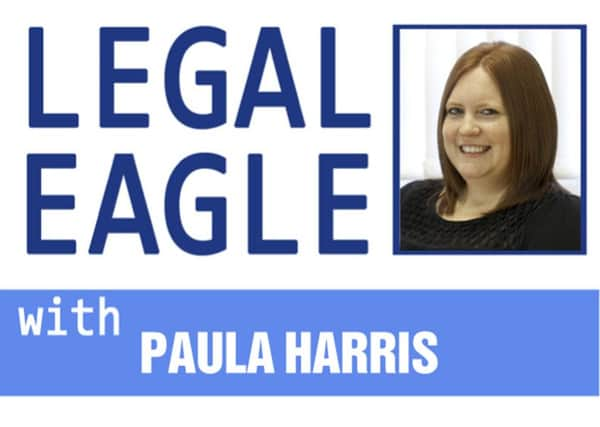LEGAL EAGLE: Getting your business in order


I suggest starting with a long hard look at your finances and cash flow. It’s sensible for all businesses to budget for bad debts, but you don’t have to give up all hope of recovering money you are owed.
If you have a clear written agreement and evidence that you have not received payment, it can be relatively straightforward to obtain a County Court Judgment compelling your debtor to pay you.
Advertisement
Hide AdAdvertisement
Hide AdOnce you obtain judgment, you can then apply for a range of enforcement options if your debtor still doesn’t pay up – these can include seizing the creditor’s assets or having their employer deduct instalments straight from their salary.
There is a court fee to pay when you make an application, but you can ask the court to award you this amount and interest. You may not be able to get your solicitor’s costs back, although this does depend on the size of the debt, but many solicitors are offering competitive fixed fee services to obtain judgment in your favour – you may decide its worth speculating to accumulate.
Next on the list to review is paperwork. Are you a sole trader or do you have business partners? If you have partners, do you have an agreement stipulating each partner’s rights and responsibilities? If not, you could find yourself in dispute over matters such as leaving the business, who is responsible for the debts of the business and how the profits should be divided.
A partnership agreement can clarify all manner of issues so that you can get on with running your business confident that there is minimal possibility of an expensive legal dispute. If you’re a limited company, are you properly registered with Companies House?
Advertisement
Hide AdAdvertisement
Hide AdThe law imposes many formal responsibilities on company directors so get regular legal advice to make sure you are complying with the law.
Are you hoping to expand and move to bigger premises? Consider the terms of your lease carefully, paying particular attention to how long you are obligated to stay at the new premises and the circumstances in which you can give notice to leave.
Make sure your forecast for expansion fits in with the length of your lease, so you don’t find yourself stuck in an inadequate premises further down the line as this may hinder your plans to expand.
However, don’t go ‘too big too soon’ and make sure that your rent is realistic in line with your financial planning.
Advertisement
Hide AdAdvertisement
Hide AdFinally, remind yourself of the legal obligations towards your staff. Review your paperwork to make sure everything is in order – do they have the right to work in the UK? Do they have an employment contract? If they want to leave, what are their notice obligations to you?
There are plenty of things to consider, and what better time to get things in order than a New Year.
lPaula Harris is Head of David Gray Solicitors’ Business Team which carries out work under the Law Society’s ‘Lawyers For Your Business’ scheme and assists many SMEs in all aspects of business work.
l You can call for an appointment with Paula on 0191 243 8147 or Chat Live 24/7 at www.davidgray.co.uk